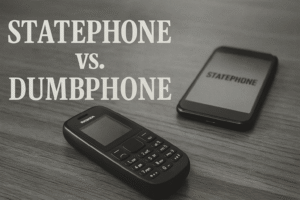
When you strip away slogans and outrage, you find a conflict that refuses to end not because it is “unsolvable,” but because every proposed solution collides with a different truth — historical, legal, moral, religious, and military. Each side holds a “blameless shield”: we are only defending ourselves. And when both parties are the victim in their own story, compromise looks like betrayal.+
Q1) Is Israel blameless?
Short answer: No state is blameless, including Israel.
- History & policy: Israel’s occupation of the West Bank, the blockade of Gaza, and settlement expansion draw sustained criticism under international law.
- Security reality: Israel faces real threats (rockets, terrorism, regional hostility). Measures seen as survival by Israelis are experienced as punishment by Palestinians.
- Internal dissent: Many Israelis criticise their own governments’ policies; disagreement is constant inside Israel itself.
Why this matters: If Israel frames everything as self-defence, it cannot concede without feeling unsafe. If Palestinians experience policies as systematic harm, they cannot accept the status quo without feeling erased.
Q2) Is there a clear path to a resolution?
Short answer: Not a clear one — several exist on paper, each blocked by hard reality.
- Two-State Solution: Borders, settlements, Jerusalem, refugees — each a veto point. Trust is near zero.
- One-State Solution: Solves borders but threatens national identities. Both sides fear domination.
- Confederation: Elegant in theory, trust-intensive in practice.
- Status quo: Recurring violence, deepening mistrust — not a solution, just a holding pattern.
Why this matters: Each path solves one problem by creating another the other side finds existential.
Q3) Why don’t other Muslim-majority countries “just help” Palestine?
Short answer: They do — unevenly and often instrumentally.
- Aid: Qatar, Turkey, Saudi Arabia, others provide financial and humanitarian aid.
- Political theatre: Loud speeches; limited leverage.
- Hard power: Iran supports armed groups; most avoid direct conflict with Israel/US.
- Normalisation: States like UAE and Bahrain prioritise ties with Israel over the Palestinian cause.
Why this matters: Regional “support” rarely converts into decisive change, fuelling Palestinian disillusionment and Israeli scepticism.
Q4) Is this a “Judeo-Christian vs. Islamic” war?
Short answer: Often framed that way, but reality is political.
- Religious gravity: Jerusalem is sacred to Jews, Christians, and Muslims.
- Political core: The dispute is about land, rights, and security — not theology.
- Global overlay: Western support for Israel and Islamist narratives create a “civilisational” veneer.
Why this matters: Civilisational framing mobilises passion but narrows compromise.
Q5) What claims do Israelis and Palestinians make?
Israeli claims:
- Ancient roots (biblical/historical presence).
- Zionism and survival after persecution, Holocaust.
- International recognition (UN 1947, 1948 statehood).
Palestinian claims:
- Continuous presence over centuries.
- Nakba (1948 displacement) with refugee legacy.
- Right to self-determination (backed by UN recognition of national rights).
Why this matters: Claims are not mutually exclusive in truth but mutually exclusive in practice when asserted as absolutes.
Q6) Are there arguments beyond both sides’ narratives?
Yes — several complicate certainty:
- Layered history: Many rulers → no exclusive claim holds.
- Colonial legacy: British Mandate & UN partition imposed from outside.
- International law: Recognises both Israel’s statehood and Palestinians’ rights; also condemns settlements. Contradictory.
- Human-rights lens: Strongest claim is whoever delivers equal rights. Neither does fully.
- Pragmatic reality: Israel controls the land; Palestine lacks sovereignty.
Why this matters: Weakens absolute claims, pushes toward negotiated imperfection — what maximalists reject.
Q7) Is this a total impasse?
Short answer: Functionally, yes.
- Security vs dignity: Israel won’t trade survival for ideals; Palestinians won’t trade rights for quiet.
- Politics: Hard lines win votes, compromise punishes leaders.
- Trauma as identity: Holocaust and Nakba harden positions; neither cancels the other.
- External actors: Add pressure, seldom provide bridges.
The “blameless shield”: Each side’s suffering becomes armour. Armour stops bullets — and also handshakes.
Why there is “no ending”
Ending would require three shifts at once:
- From victory to viability: Living alongside rather than “winning.”
- From identity to institutions: Courts and protections that outlast leaders.
- From absolutes to trade-offs: Imperfect, enforceable compromises.
Peace looks less like triumph and more like predictably decent daily life.
Perhaps the truest description of this conflict is not victory or defeat, but stalemate. Two peoples, two truths, one land. Each convinced they cannot yield without erasing themselves. History and law, faith and fear — all piled on the same few miles of earth. That is why this war has no ending. Unless, one day, the weight of being absolutely right becomes heavier than the cost of living side by side, imperfect but alive.
“Hope isn’t what they promise you. It’s how you carry on when they don’t deliver.” — Dave Carrera



